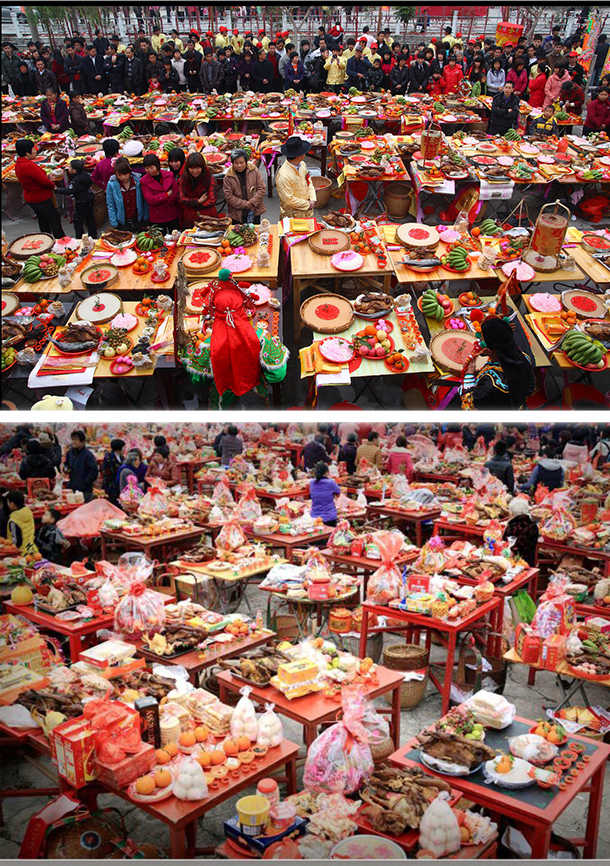Folk culture

Guangdong locals prepare abundant offerings and food in the annual worship ceremony.
食在广州,穿在苏州,玩在杭州,死在柳州。
Eat in Guangzhou, dress up in Suzhou, have fun in Hangzhou, and die in Liuzhou.
This saying references the positive aspects of various regions. Cantonese cuisine from Guangzhou is admired for its delicate tastes, Suzhou silk is well known at home and abroad, Hangzhou is famed for its gorgeous West Lake area, and Liuzhou is known for its quality wood, which is used to make coffins.
In the past, Chinese people believed leaving the world with glory and dignity is an important goal, and having an exquisite coffin is their last wish in the world.
三里不同乡,五里不同俗。
Three li separate villages and five li separate customs.
In the proverb, li is a Chinese unit of length equal to 500 meters. It indicates that every place has unique folk customs.
初一饺子初二面,初三的合子满家转。
Eat dumplings on New Year’s Day and noodles the following day. Every family makes round hezi on the third day of the first month of the lunar year.
The cuisine eaten during the Spring Festival has many specific meanings. This proverb comes from North China. Dumplings are an important food for the Spring Festival. On lunar New Year’s Day, people usually boil dumplings left over from New Year’s Eve, and this represents the family’s hopes for a surplus over the coming year. The following day, people often eat noodles, which represent smooth development and success. Hezi are a meat or vegetable pie made in North China, which represent reunions due to their round shape.
